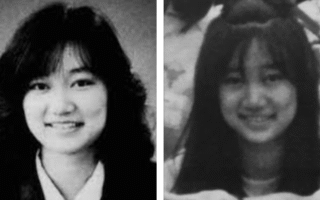Tate Collins, a nursing student in her early 20s, moves in with her brother and meets her neighbor, airline pilot Miles Archer, in San Francisco. What begins as casual physical intimacy with strict rules—never ask about his past, don’t expect a future—evolves into a powerful emotional journey neither expected.
Tate’s Present-Day Story Tate is intelligent and caring, quietly ambitious yet emotionally guarded in ways she doesn’t fully recognize. When she meets Miles, she hopes to keep things simple: attraction without attachments. But connection deepens quickly, and emotional boundaries begin to crack. Tate’s perspective is honest and tender, giving readers a window into her hopes, anxieties, and growing vulnerability.
Miles’s Past Timeline Miles, six years older and working as an airline pilot, narrates his past in alternating chapters. We learn of his intense love for a woman named Rachel, the birth of their baby, and a tragic accident that altered the rest of his life. That trauma haunts him, leading him to build emotional walls and define the two core rules of their arrangement: no questions about his past and no expectation of future.
The Climax and Emotional Resolution As Tate breaks her own rule—she asks about the past—the emotional floodgates open. Miles confronts grief long suppressed, and both characters face the difficult truth: love doesn’t erase pain, but it can heal it. The climax brings a blend of heartbreak, release, and fragile hope. Ultimately, the pair find a tentative but meaningful future together, symbolizing both the ugly and the healing power of love.
Why the Story Hurts—and Heals At its core, Ugly Love is a raw portrait of grief, trauma, and emotional healing. Many readers feel gutted by Miles’s pain yet soothed by Tate’s persistence and warmth. The novel forces the question: when someone is broken, can love alone be enough? Hoover’s prose makes the hurt vivid—and the healing, hopeful.
Writing Style and Structure Colleen Hoover’s storytelling is deceptively simple—Tate’s chapters are grounded and present, while Miles’s are spare and poetic, often tinged with regret. The alternating timeline builds suspense and emotional impact organically. Smooth pacing and emotionally intense scenes make the book hard to put down.
Colleen Hoover – A Quick Profile
- Full Name: Margaret Colleen Fennell (Hoover)
- Born: December 11, 1979, in Sulphur Springs, Texas
- Age: 45 as of early 2025
- Height (unverified): ~5 ft 9 in (1.75 m)
- Family: Married to Heath Hoover since 2000, mother of three sons
- Education: BA in social work from Texas A&M University–Commerce; formerly a social worker and teacher
Net Worth and Authorial Impact Colleen Hoover’s writing success is remarkable: by 2022, she had sold over 20 million books globally, with continued sales pushing into the 30–35 million mark by 2025. Her estimated net worth ranges between USD 10–15 million as of mid-2025, reflecting her self-publishing roots, traditional deals, merchandise, and film rights.
Social Media Presence Hoover maintains a strong online presence. On Instagram, she has over 2 million followers and regularly posts about her writing journey, book events, and personal milestones. She’s also one of the bestselling authors on TikTok, where fans (known as “CoHorts”) drive book-driven trends and emotional reviews that help fuel her visibility.
Thematic Depth of Ugly Love
- Grief and Loss: The emotional center is Miles’s heartbreak—Colleen Hoover doesn’t shy away from raw sorrow.
- Emotional Barriers: Miles’s resistance to love and Tate’s gradual breaking through are key.
- Healing through Love: The novel suggests that love might not erase trauma, but it can open a path forward.
- Modern Relationship Realities: The friends-with-benefits setup reflects contemporary intimacy, with all its complications.
Reader Reactions and Criticism Fans often describe the experience as a “gut-punch” reading: intense, emotional, and vivid. Tate and Miles’s chemistry is praised for feeling real—even painful. However, critics point out aspects of emotional immaturity in the characters, and some readers find Hoover’s light, sometimes flippant tone jarring when handling heavy trauma—accusations that aspects of the novel romanticize or simplify abuse and grief.
Who Should Read It This novel resonates most with readers who have experienced emotional loss, intrusive grief, or the yearning to heal. The story is best suited for mature readers—it contains explicit scenes and explores sensitive themes like infant death, personal guilt, and relationship boundaries.
Lessons and Takeaways
- Love can hurt as much as it heals.
- Honesty (about the past) is critical for meaningful connection.
- Healing takes time—and often needs both love and boundaries.
- Emotional resilience can emerge from even the deepest wounds.
Final Reflection Ugly Love is a compelling, emotionally heavy romance that doesn’t shy away from pain. Yet it also asserts that healing is possible. The juxtaposition of raw grief and tender hope makes the story unforgettable. Tate and Miles’s journey reveals that some love stories may be ugly—but heartbreak and redemption can coexist.
READ MORE : The Consultant WIUFAMCTA JIVBCQU Model Explained in Simple Terms
FAQs
Is Ugly Love based on a true story?
No, the novel is purely fictional. However, its emotional realism makes many readers feel deeply connected to its themes of loss and healing.
Is Ugly Love suitable for teenagers?
Due to its mature content, including explicit scenes and emotional trauma, it is best suited for readers 17 and older.
Will there be a movie adaptation of Ugly Love?
Yes, a film adaptation is in development. Actor Nick Bateman was once attached to play Miles Archer, though updates remain sparse.
Why is it called Ugly Love?
The title reflects the messy, painful, and complicated nature of love in the story. It shows that love isn’t always beautiful—but it can still be real and transformative.
Is Ugly Love connected to other Colleen Hoover books?
No, it is a standalone novel. However, it shares thematic similarities with some of her other works like “It Ends with Us.”




